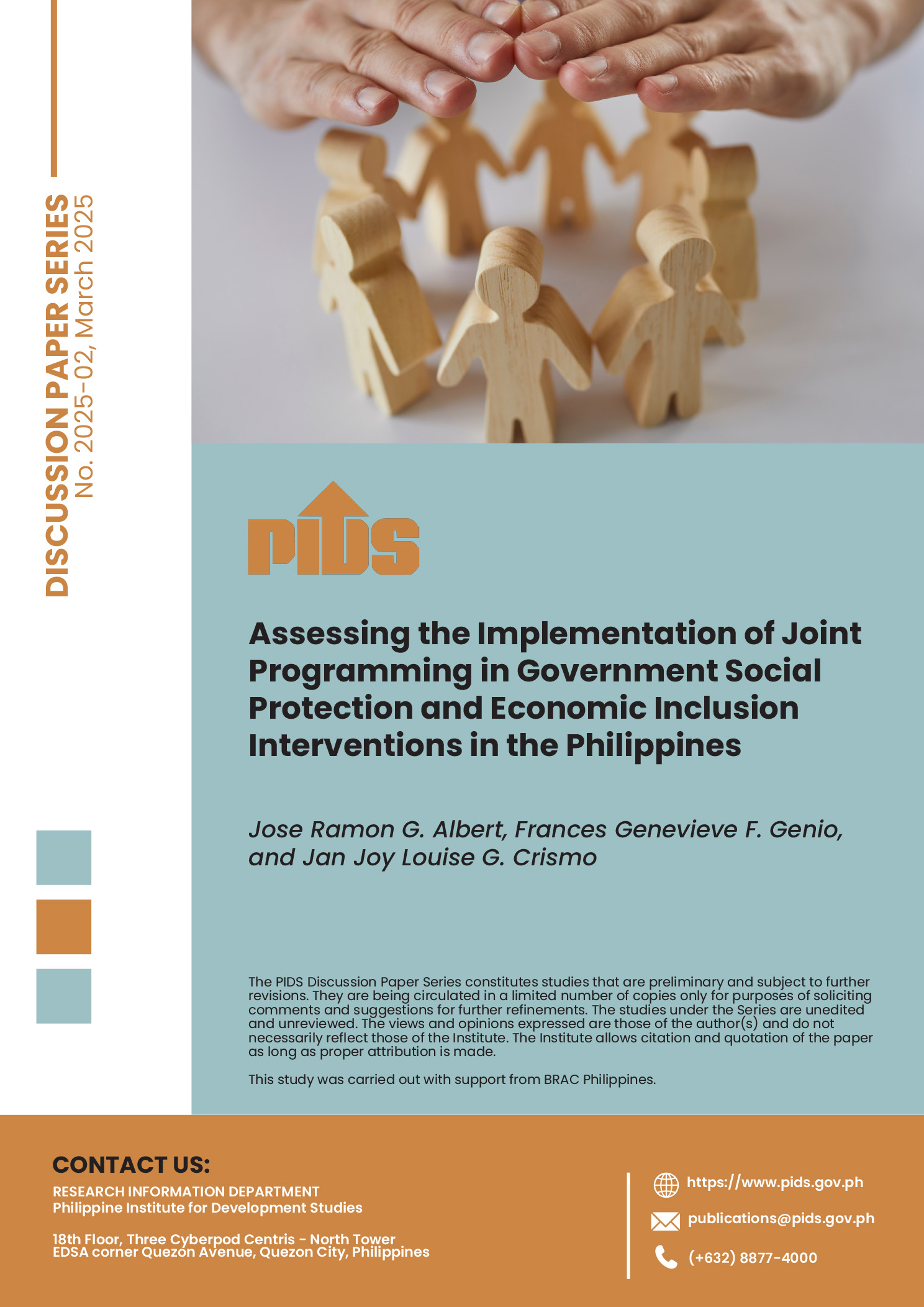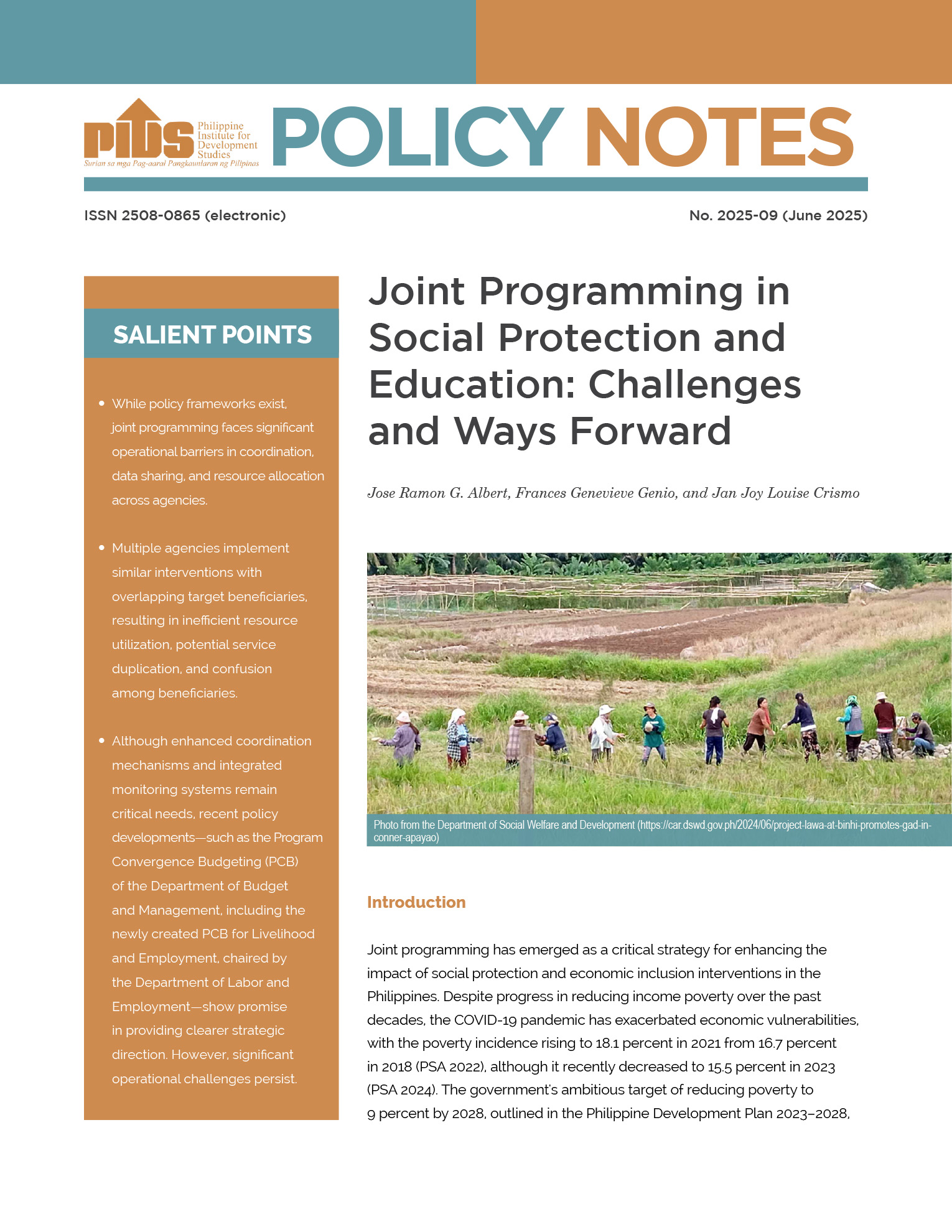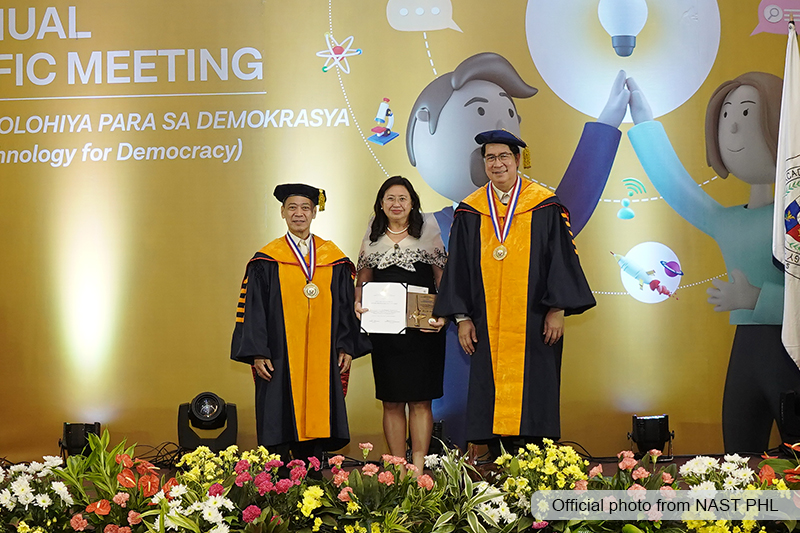It is not enough for the gross national product (GNP) to grow at a high rate in order for the government to succeed in fighting poverty. It is important that the poor benefit from this growth.
Thus stated Dr. Celia M. Reyes, a senior research fellow at the Philippine Institute for Development Studies (PIDS) in a perspective paper, ?The Poverty Fight: Have We Made an Impact??
Data from the National Statistics Office (NSO) indicate that the proportion of the population who are poor has steadily declined from 49.2% in 1985 to 36.9% in 1997. However, the crisis in 1997-1998 caused poverty incidence to go up to 39.5% in 2000. In terms of magnitude, the number of poor has increased from 26.7 million in 1985 to 26.8 million in 1997. This went up further to 30.8 million in 2000.
Dr. Reyes noted that the poverty reduction was due mainly to economic growth and not to distribution.
?Economic growth resulted to an increase in per capita income, thereby reducing the incidence of poverty. However, the inequitable distribution of income prevented the poor from benefiting fully from this growth,? Reyes explained.
Given this condition, Reyes suggested that it is imperative that the country has programs directed at the poor. Otherwise, she cautioned that it is possible that even if the Philippines experiences growth, it would not make significant progress in its fight against poverty. Likewise, she pointed out the importance of the role of government bodies like the National Anti-Poverty Commission in overseeing the poverty reduction programs.
Dr. Reyes? perspective paper on poverty is part of the Perspective Paper Symposium Series that the PIDS is conducting beginning August 15 until September 12, 2002 in celebration of its 25th founding anniversary. The topics of other perspective papers are on public finance, infrastructure and privatization, banking and finance, environment, agriculture and rural development, science and technology, human resource development and labor markets, competition policy, trade and regional integration and housing development. The papers will be presented by PIDS research fellows, with eminent social scientists as discussants.
Meanwhile, a free admission-research fair where various PIDS and other research institutions? studies are to be exhibited will be held on September 18-20 at the AIM Conference Center in Makati City. The occasion will serve as a culminating activity of the PIDS anniversary celebration.
Queries concerning the PIDS anniversary activities may be addressed to the PIDS Public Affairs Division at tel nos. 8924059/ 8935705, fax number 8939589 or e-mail address ggizelle@pidsnet.pids.gov.ph.
Thus stated Dr. Celia M. Reyes, a senior research fellow at the Philippine Institute for Development Studies (PIDS) in a perspective paper, ?The Poverty Fight: Have We Made an Impact??
Data from the National Statistics Office (NSO) indicate that the proportion of the population who are poor has steadily declined from 49.2% in 1985 to 36.9% in 1997. However, the crisis in 1997-1998 caused poverty incidence to go up to 39.5% in 2000. In terms of magnitude, the number of poor has increased from 26.7 million in 1985 to 26.8 million in 1997. This went up further to 30.8 million in 2000.
Dr. Reyes noted that the poverty reduction was due mainly to economic growth and not to distribution.
?Economic growth resulted to an increase in per capita income, thereby reducing the incidence of poverty. However, the inequitable distribution of income prevented the poor from benefiting fully from this growth,? Reyes explained.
Given this condition, Reyes suggested that it is imperative that the country has programs directed at the poor. Otherwise, she cautioned that it is possible that even if the Philippines experiences growth, it would not make significant progress in its fight against poverty. Likewise, she pointed out the importance of the role of government bodies like the National Anti-Poverty Commission in overseeing the poverty reduction programs.
Dr. Reyes? perspective paper on poverty is part of the Perspective Paper Symposium Series that the PIDS is conducting beginning August 15 until September 12, 2002 in celebration of its 25th founding anniversary. The topics of other perspective papers are on public finance, infrastructure and privatization, banking and finance, environment, agriculture and rural development, science and technology, human resource development and labor markets, competition policy, trade and regional integration and housing development. The papers will be presented by PIDS research fellows, with eminent social scientists as discussants.
Meanwhile, a free admission-research fair where various PIDS and other research institutions? studies are to be exhibited will be held on September 18-20 at the AIM Conference Center in Makati City. The occasion will serve as a culminating activity of the PIDS anniversary celebration.
Queries concerning the PIDS anniversary activities may be addressed to the PIDS Public Affairs Division at tel nos. 8924059/ 8935705, fax number 8939589 or e-mail address ggizelle@pidsnet.pids.gov.ph.












